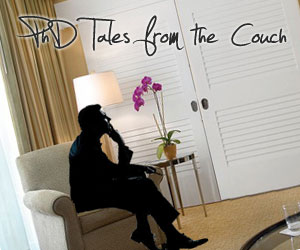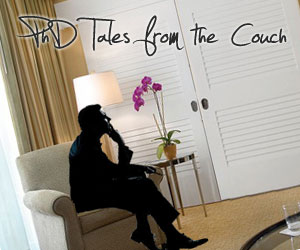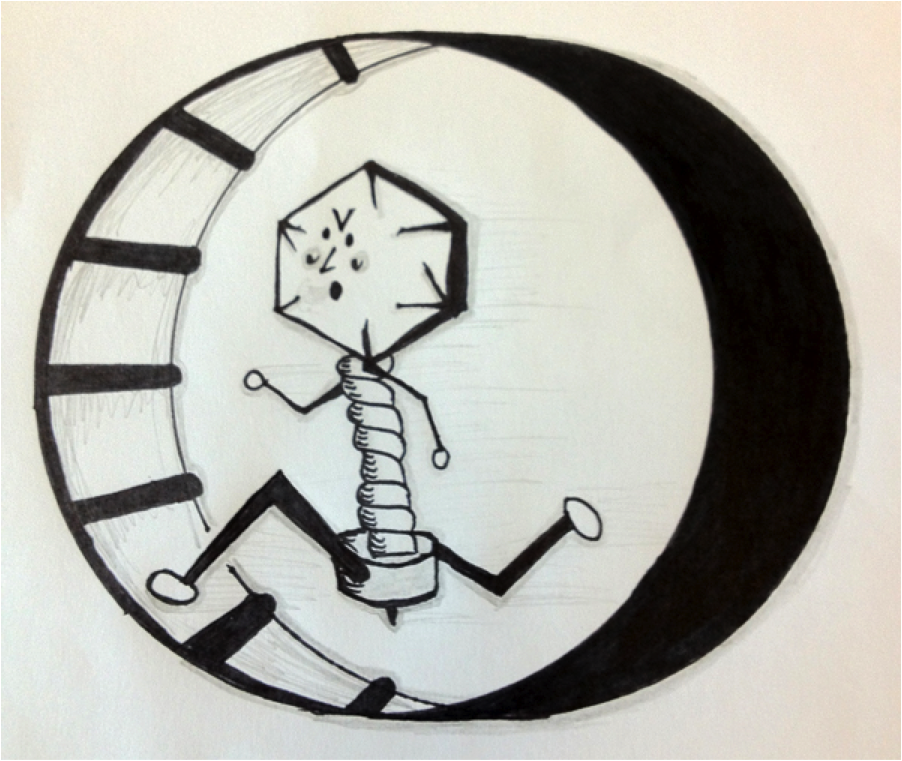…but when I saw the headline “scientists generate electricity from viruses” this is where my mind went:
Flyceum: Your Science. Your Career.
We’re following in the tradition of open discussions among scientists that has resulted in important advances in both science and society.
Who’s Really Pursuing the Alternative Career in Science?
by
 These days it’s hard to escape the “alternative” label – alternative energy, alternative lifestyles, alternative medicine, alternative music, and of course, alternative careers. Prefacing a term with “alternative” implies those who find themselves in the “alternative” category have somehow strayed from the “normal” or “accepted” track. Nowhere is this stigma felt more than in science, where for decades researchers have been trained to pursue the “traditional” career path (aka, academics) or else risk finding themselves floating in the middle of the amorphous “alternative” pool (aka, all other careers). But does this perception accurately reflect today’s reality?
These days it’s hard to escape the “alternative” label – alternative energy, alternative lifestyles, alternative medicine, alternative music, and of course, alternative careers. Prefacing a term with “alternative” implies those who find themselves in the “alternative” category have somehow strayed from the “normal” or “accepted” track. Nowhere is this stigma felt more than in science, where for decades researchers have been trained to pursue the “traditional” career path (aka, academics) or else risk finding themselves floating in the middle of the amorphous “alternative” pool (aka, all other careers). But does this perception accurately reflect today’s reality?
Cell Culture Derailing Your Vacation Plans?
by
I maintain a line of particularly finicky cells as an integral part of my project. They need some kind of maintenance every 2-3 days, which isn’t a big deal other than the fact that finding vacation time is nearly impossible. I’m not sure I trust them to a lab mate and if I were to bleach them and go back to a frozen stock after the vacation, it would be about three weeks before I could start doing experiments again, which my boss makes me feel guilty about every time I bring it up. Any thoughts on how to get away?
Erin, graduate student
How is a Dormouse Like a Career Scientist?
by
 No it’s not predation by large owls, it’s strategic reproduction.
No it’s not predation by large owls, it’s strategic reproduction.
As anyone in academia knows, when to start a family is a really tricky decision. If you follow the traditional career path from college (4 years), to grad school (5-7 years), through a postdoc (3-6 years), perhaps another postdoc (3-6 years), into a tenure track position (5 years) which finally leads to a tenured faculty job (eternal) there really is no “good time” to pop out a baby or two.
PhD Tales from the Couch: The Age of Anxiety
by
 “It was the best of times, it was the worst of times, it was the age of wisdom, it was the age of foolishness, it was the epoch of belief, it was the epoch of incredulity, it was the season of Light, it was the season of Darkness, it was the spring of hope, it was the winter of despair, we had everything before us, we had nothing before us …”
“It was the best of times, it was the worst of times, it was the age of wisdom, it was the age of foolishness, it was the epoch of belief, it was the epoch of incredulity, it was the season of Light, it was the season of Darkness, it was the spring of hope, it was the winter of despair, we had everything before us, we had nothing before us …”
This quote from A Tale of Two Cities by Charles Dickens can perhaps sum up the feeling of anxiety we all experience at certain times, when our life flip flops between complete despair and a promise of success. This may be especially true if you are a graduate student or a post-doc dealing with work-related stress brought about by a number of factors. As someone in a trainee position at the start of our scientific careers in the academic or corporate hierarchy, we are no strangers to stress. We work in the environment loaded with anxiety triggers: sometimes we feel powerless working in a state of perpetual uncertainty and lack of control, always exposed to extreme competitiveness and limited resources, long working hours, failed experiments, harsh criticism from reviewers or committee members, unrealistic demands from the adviser, and let’s not forget the “Publish or Perish” formula of the Ivory Tower. An article titled Grad School Blues published in The Chronicle Review reports that “Graduate school is gaining a reputation as an incubator for anxiety and depression.” As such, we are chronically exposed to anxiety triggers.
Sharing PhD Tales from the Couch with Yevgeniy Grigoryev
by
 Editor’s note: Obtaining a PhD is undoubtedly an intellectually challenging endeavor. However, many of us are unprepared for the extent of the mental hurdles we face on the road to our degree. Stress, loneliness, panic, anxiety, uncertainty, and depression are commonplace in most scientists’ career development at some point, yet these emotional struggles are rarely discussed openly. Couple this with the fact that many researchers find their work and sacrifices unappreciated by family, friends, and society at large and the strain can become overwhelming. At times it feels as though we’d benefit more from a therapist than from a PI.
Editor’s note: Obtaining a PhD is undoubtedly an intellectually challenging endeavor. However, many of us are unprepared for the extent of the mental hurdles we face on the road to our degree. Stress, loneliness, panic, anxiety, uncertainty, and depression are commonplace in most scientists’ career development at some point, yet these emotional struggles are rarely discussed openly. Couple this with the fact that many researchers find their work and sacrifices unappreciated by family, friends, and society at large and the strain can become overwhelming. At times it feels as though we’d benefit more from a therapist than from a PI.
Phosphoproteins: Where’s the “ON” Switch?
by
 Light switches on the wall: Concepts we take for granted
Light switches on the wall: Concepts we take for granted
For much of my life, dealing with electrical lighting has been relatively straight-forward. Upon walking into a dark room, I flip a wall-mounted switch into the up position to turn the lights on. When I’m done in that room, moving that same switch into the down position turns the lights off. For the first 26 years of my life, turning something on or off had essentially become a “dogma” for me: up for on, down for off.
With Great Power Comes Great Violin Strings
by
 As you may or may not know, I was a violinist well before I was a scientist. For some reason, teachers are much happier to put a violin into the hands of a six-year-old than they are a pipette or a beaker full of hydrochloric acid. Parents, on the other hand, are generally less impressed, especially when said six-year-old is encouraged to practice at home (a.k.a. impersonate a dying cat) for at least 20 minutes a day. But eventually I managed to make the tune of “Twinkle Twinkle Little Star “ discernable from the other strange sounds emanating from my violin, and I’ve been playing ever since.
As you may or may not know, I was a violinist well before I was a scientist. For some reason, teachers are much happier to put a violin into the hands of a six-year-old than they are a pipette or a beaker full of hydrochloric acid. Parents, on the other hand, are generally less impressed, especially when said six-year-old is encouraged to practice at home (a.k.a. impersonate a dying cat) for at least 20 minutes a day. But eventually I managed to make the tune of “Twinkle Twinkle Little Star “ discernable from the other strange sounds emanating from my violin, and I’ve been playing ever since.
Becoming a Professor: How to Follow-Up a Postdoc FAIL
by
 Postdocs are the hired guns of academic research. They come complete with technical expertise and motivation to tackle a new scientific challenge. The postdoc is regarded as a training position and for those who desire an academic career, this period is a springboard to that opportunity. In theory, a postdoctoral fellowship is not meant to be a prolonged period, in which dirty words like “decade” and “comfortable” come into play. Rather, a more focused approach would do us well- get in, get what you need, get out. But what happens if your experience ends up being more like get in, get stuck, get depressed? Is that the end of your academic dreams?
Postdocs are the hired guns of academic research. They come complete with technical expertise and motivation to tackle a new scientific challenge. The postdoc is regarded as a training position and for those who desire an academic career, this period is a springboard to that opportunity. In theory, a postdoctoral fellowship is not meant to be a prolonged period, in which dirty words like “decade” and “comfortable” come into play. Rather, a more focused approach would do us well- get in, get what you need, get out. But what happens if your experience ends up being more like get in, get stuck, get depressed? Is that the end of your academic dreams?
Is a Publication Gap on Our CV a Job Killer?
by
Thank you for your recent article about leaving a postdoc quickly with your reputation intact. My question somewhat parallels the matter you addressed. In my case, I didn’t leave my postdoc quickly; in fact I remained with that lab for a full two years (almost to the day). However, I did choose to leave at that time because, given the time and effort I did invest in that lab, being as objective as I could be, I didn’t see any tangible progress between Day 1 and the day I left. I was told by my PI, when leaving, that I should write up any and all results in a manuscript format and that we would certainly work, long-distance, to publish whatever had been successful either as a standalone paper (1st authorship for me) or combined with someone else’s project (2nd authorship or onward for me, but at least something!). I diligently wrote up what I had, but no publication ever arose from the two years I spent as a postdoc in that lab. All-in-all, I have very little to show from all the time and effort I invested.




